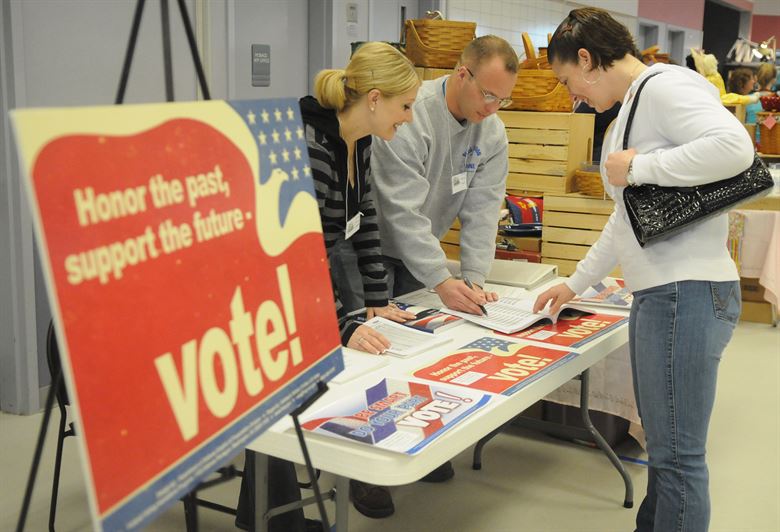New research contradicts claims media organizations and political commentators have made about unusually high levels of political involvement among the public during the 2016 presidential election.
The study finds that public interest and voter engagement in 2016 closely matched that of previous elections.
Two scholars from Princeton University looked at data on voter turnout and responses to surveys designed to gauge political interest. They also examined estimates for cable and broadcast TV viewership during key moments of the presidential campaign — the presidential debates, for example, and the final night of the two nominating conventions.
Markus Prior, a professor of politics and public affairs, worked on the analysis during his fellowship at Harvard’s Shorenstein Center on Media, Politics and Public Policy, of which Journalist’s Resource is a project.
The paper was published in Public Opinion Quarterly in late March 2018. Here are some of its takeaways:
- Voter turnout in 2016 was similar to that of previous years. Slightly more than 60 percent of eligible voters participated in the 2016 general election, compared to 58.6 percent in 2012, 62.2 percent in 2008 and 60.7 percent in 2004. Primary turnout in 2016 was lower than in 2008.
- Republican participation in the primary election was higher in 2016. Turnout was 12.7 percent, up from 7.8 percent in 2012 and 9.7 percent in 2008.
- Less educated white men were not more involved than usual in 2016. Turnout for white men without college degrees was 56.8 percent in 2008, 54.8 percent in 2012 and 55.8 percent in 2016.
- In 2016, political interest peaked in March but did not differ much from the historical average, according to Pew Research Center survey results. But a survey by the American National Election Studies, conducted weeks before the 2016 general election, suggests an increase in the proportion of people who reported being “very much interested” in the campaign compared to the previous three elections.
- On average, 32.2 million people watched Donald Trump accept the Republican nomination in 2016. More people tuned in to watch Barack Obama’s acceptance speech in 2008. The last night of the 2008 Republican convention drew an average of 38.4 million viewers.
- “Political involvement in the 2016 presidential election was fairly close to the 2008 election, the most recent open-seat election, but did not quite reach it on most metrics,” the authors wrote. “Compared to 2012 and 2004, when incumbents ran for re-election, involvement was somewhat higher, but the magnitude of the differences is small. This conclusion is remarkably at odds with the hype of newspaper headlines and breathless public discourse during the fall of 2016.”
Want more research on political involvement? We have write-ups that examine the role of race in voter turnout, how often voter fraud occurs and whether black Republicans can draw voters to the GOP.


Expert Commentary